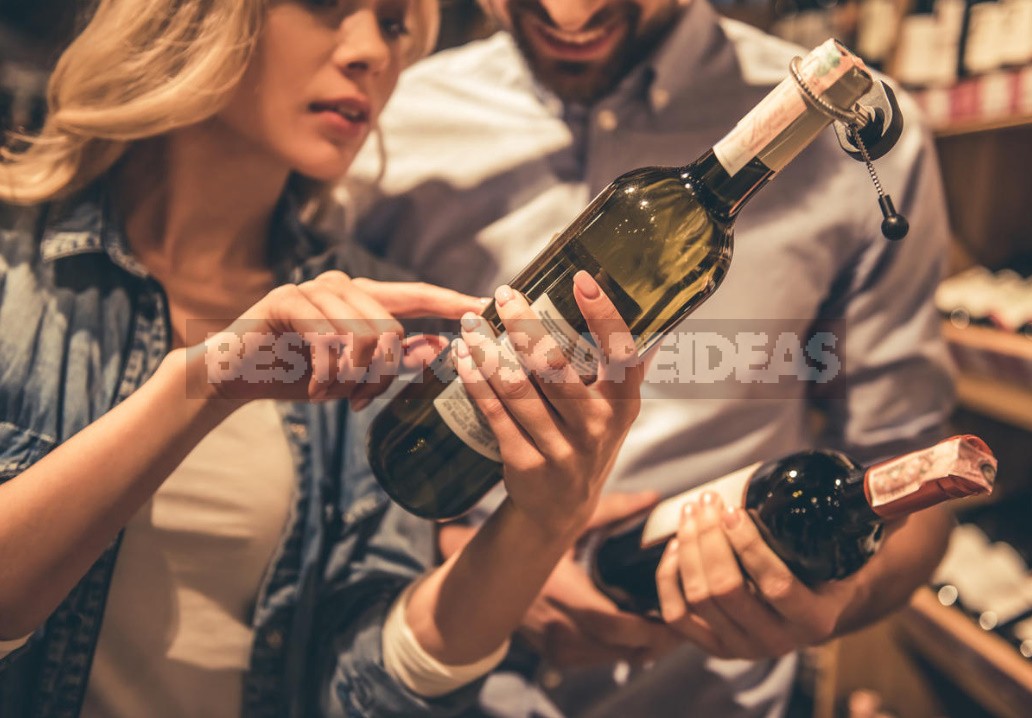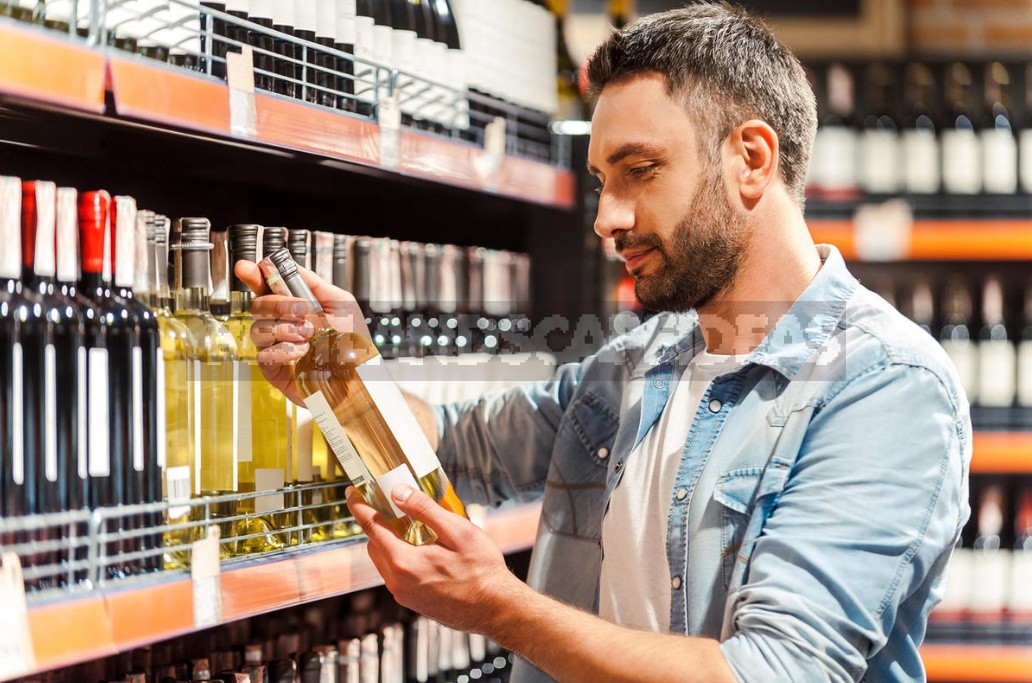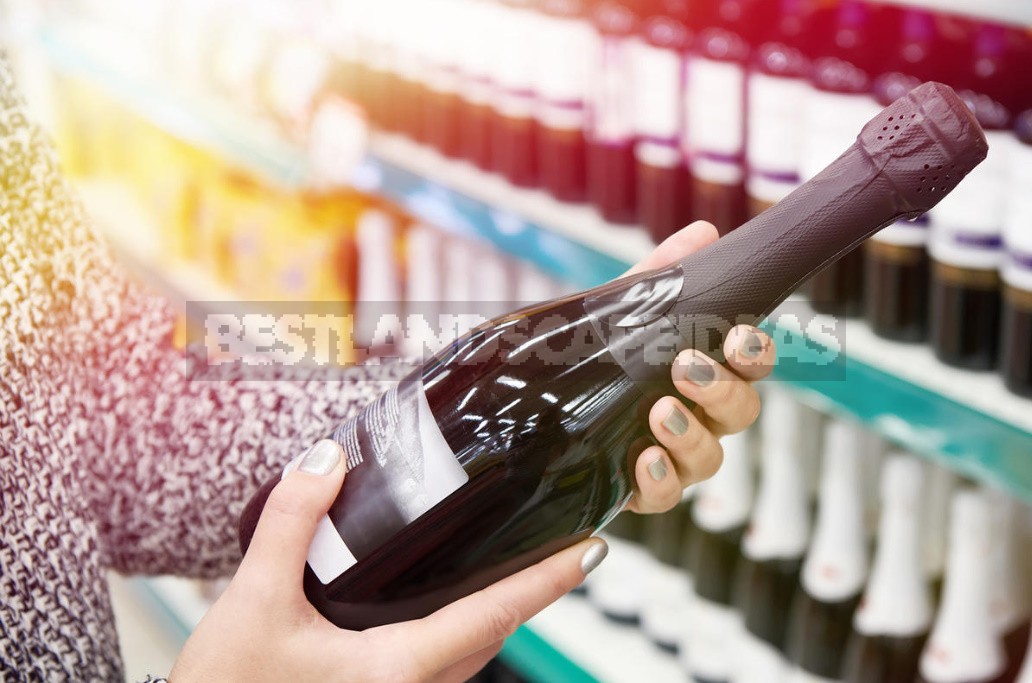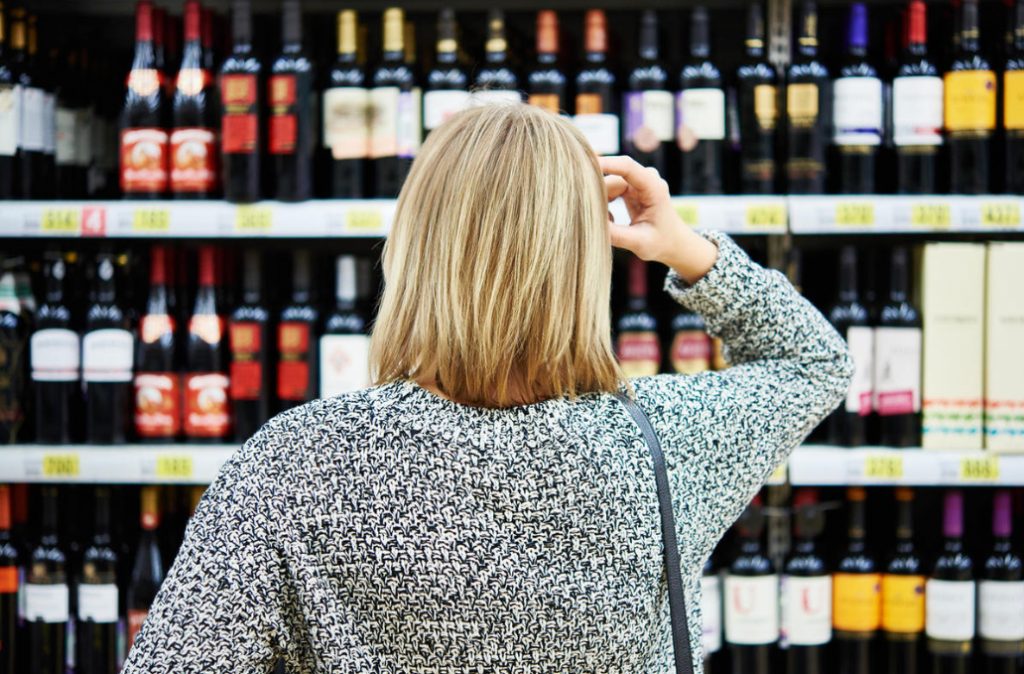On new year’s eve, alcoholic beverages are on almost every table. And now, while preparations are still underway for the holiday, let’s talk about how to choose alcohol so that a fun feast does not turn into trouble because of poisoning.
It is not so important which product you buy: wine, vodka, whiskey-it depends on your personal preferences. It is important to understand that any low-quality product can cause severe poisoning. And how to recognize it?
Avoid wine drinks
A wine drink is, simply put, a legitimate surrogate. On the one hand, it is produced using wine materials and technologies similar to those used for the production of real wine. On the other hand, it contains only 50% of the wine material, and perhaps less-it depends on the conscience of the manufacturer; the rest — flavorings, sugar, alcohol, dyes…

Read the full product name on the back of the bottle label. A wine drink can be packaged in the same way as a regular wine. It can even be called as a well — known and popular wine-and the buyer often does not think about safety when purchasing such a product. But in the usual bottle, in fact, there will be a product with a different composition.
The quality and taste of a wine drink is usually worse than that of natural wine, but the price is also more affordable. Although experts believe that you can find quite a decent wine product, if you try, it is hardly worth experimenting.
Try to avoid the label “wine drink”, “wine product” — it will almost certainly be diluted alcohol with added colors and flavors. And often this alcohol is very low quality.
Buy in the “right” stores
Avoid shopping in stalls, small retail outlets. You should only buy alcohol in stores that must have a license to sell alcohol products, and you have the right to request this information.

In addition, in the store, you have the right to ask for documents attached to the product (a certificate of conformity, a certificate of conformity, and others). Information about the seller and supplier (contact details, address) must be open, and documents must be signed and stamped.
Alcohol for the New year is better to buy in the store. And it is desirable to keep a check just in case, so that later, if anything, correctly make a claim. I do not recommend buying alcohol after 23.00 in shops that sell at night — there is a lot of fake alcohol. Also, I do not recommend buying from individuals alcoholic products of their own manufacture (moonshine).
Beware of substitutes and imitations
Fake (surrogate) alcohol can simply be low-quality alcoholic products made with violations of technology; it is much more dangerous when the surrogate contains substances that are not intended for ingestion: methyl alcohol, ethylene glycol, etc. various alcohol-containing liquids are also included in alcohol surrogates: colognes, medicines with ethyl alcohol in the composition, etc.

When such products are poisoned, intoxication increases very quickly, and a person can die if medical care is not provided in time.
It’s so easy to distinguish a fake from a real bottle in appearance, as I know, because it’s a whole business. But if you open such a drink, you may feel a sharp, unpleasant smell (for example, acetone).
What about price and quality?
Sometimes the quality and price are the same. For example, when you buy Italian wine — certified and natural. But there are also good domestic brands that offer fairly high-quality products at a reasonable price. The price of vodka, among other reasons, depends on the quality of alcohol: the higher it is, the more expensive the product can be. However, the price is still an unreliable criterion; it is better to focus on consumer reviews, verified brands and the smell of the selected alcohol.

I didn’t notice a big difference in quality depending on the price, because there are a lot of fakes, even among goods with an excise stamp, especially expensive vodka, which will rush to the shelves like a river just in time for the New year. In addition, at this time, the manufacturers themselves will sin with quality.
Does the age and degree of the product play a role?
Let’s immediately deal with the opinion that wine only gets better over the years. This is true, but not always. First, it is quite difficult to create such a wine, and secondly, it is expensive. Not every wine tastes better over the years, and most of the drinks we see on store shelves are not designed for long-term storage, even if the label says that “shelf life is unlimited”.

Wines of the average price category are stored for about 3 years, high-class wines-up to 10 years or more. The same with vodka: pay attention to the date of bottling, and if it was more than a year ago, refuse to buy. Alcohol can remain unchanged for longer than usual under ideal conditions, but it is not known whether the storage rules are observed even in verified stores.
When buying, pay attention to the dates indicated on the label – this is not so much a question of “spoilage” of any drink, as its taste. Products that have been gathering dust on store shelves for several years may have an unpleasant taste.
The degree of alcohol also can not serve as a sign of its quality or a guide when choosing. If the degree is higher, the alcohol is not necessarily worse (or better), it is just stronger.
How can you get poisoned by alcohol?
In fact, intoxication is poisoning, or intoxication, the severity of which depends on the quality of the alcoholic product and its amount received in the body. The severity of intoxication increases markedly if a person has drunk a low-quality product or surrogate.

There are several stages of alcohol intoxication. It is important to know their signs in time to notice something wrong and help the victim.
1. Mild intoxication
At this stage, the person feels comfort, harmony and relaxation, but it becomes more difficult to control himself, his speech becomes slurred. After two or three hours, you may experience drowsiness and fatigue. After the intoxication has passed, the memories of the events that accompanied it will remain.
2. Average intoxication
The mood becomes unstable, nausea and vomiting occur. A person can show aggression, which is replaced by laughter and fun. It becomes difficult to switch to something and analyze what is happening. When the intoxication passes, you will feel all the signs of a hangover: headache, weakness, lethargy.

3. Severe intoxication
At this stage, a person loses himself in time and space. He can’t stand, and his coordination is severely impaired. Possible nausea, vomiting. The likelihood of stroke, heart failure, coma, and other severe consequences increases.
4. Alcoholic coma
This is the most dangerous condition, the probability of death is very high, and emergency care is required. The first stage of a coma can be manifested by complete loss of consciousness, a weak pulse, and involuntary urination. The second stage – convulsions, weakened reaction to external stimuli. At the third stage, breathing becomes difficult, the heart rate is disturbed; without timely help, the victim may die.
Substances that cause poisoning
The causes of poisoning are various substances. Some of them are extremely dangerous to health and should not be contained in alcoholic beverages — that is why it is so important to buy only high-quality products.

- Ethanol
It is found in most alcoholic beverages. Excess ethanol in the body can lead to death.
- Methanol
As a rule, it is contained in surrogates. When it is broken down, strong poisons are formed in the body. As a result of methanol poisoning, partial or complete loss of vision, coma, and death are possible.
- Glycol
Another component contained in surrogates. Disrupts the function of the kidneys and leads to death.
- Hydrolysis and sulfite alcohols
They are obtained from wood. They are four times more dangerous than ethyl alcohol because of their high toxicity, and the probability of death when drinking beverages containing these substances is maximum.
The list is not exhaustive — it is possible to list what may be in the composition of alcoholic products and cause poisoning for a long time. And it is unlikely that these substances will be listed on the label, so follow all safety measures when choosing drinks for the holiday table.
What to do if a person is poisoned?
In case of severe poisoning, you need to call an ambulance. If a person is conscious, they are given a lot of liquid to drink and cause vomiting. Then give activated carbon or other adsorbent drug that will help the body get rid of toxins.

It is not easy to choose high-quality alcohol for a festive table, but it is possible. Make purchases in trusted supermarkets, read what is written on the back label, check the date and place of bottling. If the wine is Italian, it should be bottled in Italy, not somewhere else.
Maybe you have your own secrets of choosing alcohol? What rules do you follow when buying alcohol for the holiday? Share your opinion in the comments!


















